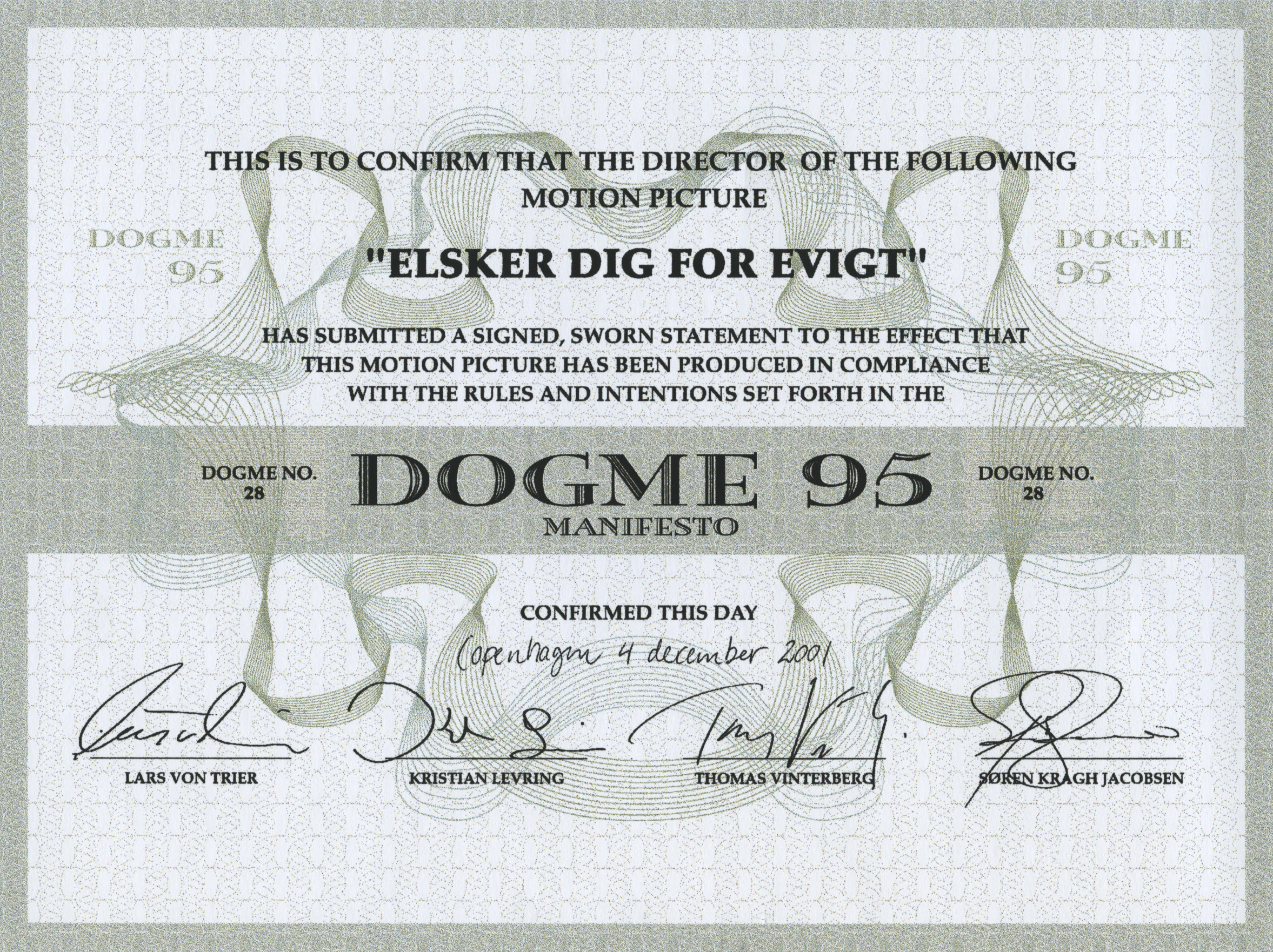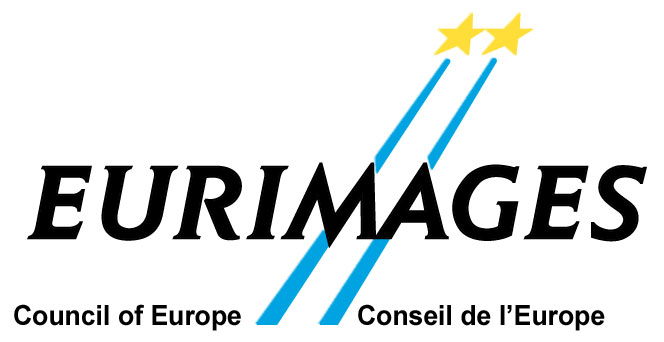|
Melancholia (2011 Film)
''Melancholia'' is a 2011 apocalyptic drama art film written and directed by Lars von Trier and starring Kirsten Dunst, Charlotte Gainsbourg, and Kiefer Sutherland, with Alexander Skarsgård, Brady Corbet, Cameron Spurr, Charlotte Rampling, Jesper Christensen, John Hurt, Stellan Skarsgård, and Udo Kier in supporting roles. The film's story revolves around two sisters, one of whom marries just before a rogue planet is about to collide with Earth. ''Melancholia'' is the second film in von Trier's unofficially titled ''Depression Trilogy''. It was preceded in 2009 by ''Antichrist'' and followed by '' Nymphomaniac'' in 2013. On 18 May 2011, ''Melancholia'' premiered at the 64th Cannes Film Festival, where it was received with critical acclaim and Dunst received the festival's Best Actress Award for her performance, which was a common area of praise among critics. Although it has detractors, many critics and film scholars have considered the film to be a personal masterpiece; c ... [...More Info...] [...Related Items...] OR: [Wikipedia] [Google] [Baidu] |
Lars Von Trier
Lars von Trier ('' né'' Trier; 30 April 1956) is a Danish filmmaker, actor, and lyricist. Having garnered a reputation as a highly ambitious, polarizing filmmaker, he has been the subject of several controversies: Cannes, in addition to nominating and awarding his films on numerous occasions, once listed him as '' persona non grata'' for flippant Nazi remarks during an interview; depictions of graphic violence and unsimulated sex in some of his films have drawn criticism; and he has been accused of mistreating actresses during filming, including Björk and Nicole Kidman. Trier's career has spanned more than four decades and his works have gained notoriety for his trademarks including European frequent actors (particularly Jean-Marc Barr, Udo Kier and Stellan Skarsgård), different thematic trilogies, handheld camerawork, upsetting subject matters, genre and technical innovation, confrontational examination of existential, social, and political issues, and his treatment of su ... [...More Info...] [...Related Items...] OR: [Wikipedia] [Google] [Baidu] |
Arte
Arte (; (), sometimes stylized in lowercase or uppercase in its logo) is a European public service channel dedicated to culture. It is made up of three separate companies: the Strasbourg-based European Economic Interest Grouping ARTE, plus two member companies acting as editorial and programme production centres, ARTE France in Paris (formerly known as La Sept) and ARTE Deutschland in Baden-Baden (a subsidiary of the two main public German TV networks ARD and ZDF). As an international joint venture (an EEIG), its programmes focus on audiences in both countries. Because of this, the channel has two audio tracks and two subtitle tracks, one each in French and German. 80% of Arte's programming is provided by its French and German subsidiaries, each making half of the programmes. The remainder is provided by the European subsidiary and the channel's European partners. Selected programmes are available with English, Spanish, Polish and Italian subtitles online. In J ... [...More Info...] [...Related Items...] OR: [Wikipedia] [Google] [Baidu] |
Apocalyptic Film
Apocalyptic and post-apocalyptic fiction is a subgenre of speculative fiction in which the Earth's (or another planet's) civilization is collapsing or has collapsed. The apocalypse event may be climatic, such as runaway climate change; astronomical, such as an impact event; destructive, such as nuclear holocaust or resource depletion; medical, such as a pandemic, whether natural or human-caused; end time, such as the Last Judgment, Second Coming or Ragnarök; or more imaginative, such as a zombie apocalypse, cybernetic revolt, technological singularity, dysgenics or alien invasion. The story may involve attempts to prevent an apocalypse event, deal with the impact and consequences of the event itself, or it may be post-apocalyptic, set after the event. The time may be directly after the catastrophe, focusing on the psychology of survivors, the way to keep the human race alive and together as one, or considerably later, often including that the existence of pre-catastrophe ... [...More Info...] [...Related Items...] OR: [Wikipedia] [Google] [Baidu] |
British Board Of Film Classification
The British Board of Film Classification (BBFC, previously the British Board of Film Censors) is a non-governmental organisation founded by the British film industry in 1912 and responsible for the national classification and censorship of films exhibited at cinemas and video works (such as television programmes, trailers, adverts, public information/campaigning films, menus, bonus content, etc.) released on physical media within the United Kingdom. It has a statutory requirement to classify all video works released on VHS, DVD, Blu-ray (including 3D and 4K UHD formats), and, to a lesser extent, some video games under the Video Recordings Act 1984. The BBFC was also the designated regulator for the UK age-verification scheme which was abandoned before being implemented. History and overview The BBFC was established in 1912 as the British Board of Film Censors by members of the film industry, who preferred to manage their own censorship than to have national or local g ... [...More Info...] [...Related Items...] OR: [Wikipedia] [Google] [Baidu] |
2011 Cannes Film Festival
The 64th Cannes Film Festival was held from 11 to 22 May 2011. American actor Robert De Niro served as the president of the jury for the main competition and French filmmaker Michel Gondry headed the jury for the short film competition. South Korean film director Bong Joon-ho was the head of the jury for the Caméra d'Or prize, which is awarded to the best first-time filmmaker. The American film '' The Tree of Life'', directed by Terrence Malick won the Palme d'Or. ''Midnight in Paris'', written and directed by Woody Allen, opened the festival and ''Beloved'' (''Les Bien-aimés''), directed by Christophe Honoré and screened as out of competition, closed the festival. Mélanie Laurent hosted the opening and closing ceremonies. Italian film director Bernardo Bertolucci was presented with the third Honorary Palme d'Or Award at the opening ceremony of the festival. Though the award had been given out sporadically in the past the Honorary Palme d'Or was supposed to presented ... [...More Info...] [...Related Items...] OR: [Wikipedia] [Google] [Baidu] |
Les Films Du Losange
Les films du losange is a film production company founded by Barbet Schroeder and Éric Rohmer in 1962. The company funds and distributes many films from the French nouvelle vague era, directed by Rohmer, Schroeder, Roger Planchon, Jacques Rivette, and later on Michael Haneke and Jacques Doillon. In January 2022, Les films du losange acquired the catalogue of French director Jean Eustache Jean Eustache (; 30 November 1938 – 5 November 1981) was a French filmmaker. During his short career, he completed numerous short films, in addition to a pair of highly regarded features, of which the first, '' The Mother and the Whore'', is .... Partial filmography References External links Official website {{DEFAULTSORT:Films du losange, Les Éric Rohmer Film production companies of France Mass media companies established in 1962 1962 establishments in France ... [...More Info...] [...Related Items...] OR: [Wikipedia] [Google] [Baidu] |
Swedish Film Institute
The Swedish Film Institute ( sv, Svenska Filminstitutet) was founded in 1963 to support and develop the Swedish film industry. The institute is housed in the ''Filmhuset'' building located in Gärdet, Östermalm in Stockholm. The building, completed in 1970, was designed by architect Peter Celsing. Function The Swedish Film Institute supports Swedish filmmaking and allocates grants for production, distribution and public showing of Swedish films in Sweden. It also promotes Swedish cinema internationally. Furthermore, the Institute organises the annual Guldbagge Awards. The Swedish Film Database is published by the institute. Through the Swedish Film Agreement, between the Swedish state and the film and media industry, the Government of Sweden, the TV companies which were party to the agreement, and Sweden's cinema owners jointly fund the Film Institute and thus, indirectly, Swedish filmmaking. The agreement ran from January 1, 2006, until December 31, 2012. The building a ... [...More Info...] [...Related Items...] OR: [Wikipedia] [Google] [Baidu] |
Eurimages
Eurimages is a cultural support fund of the Council of Europe, established in 1989. Eurimages promotes independent filmmaking by providing financial support to feature-length fiction, animation, and documentary films. In doing so, it encourages co-operation between professionals across Europe. Eurimages is headquartered in Strasbourg, France in the Agora building of the Council of Europe. The current Chairperson is Catherine Trautmann. Purpose The fund was created in 1988 within the framework of the Council of Europe, as a Partial Agreement, under Committee of Ministers Resolution (88) 15, with an independent budget of 21M €. It currently includes 38 of the 47 member states of the Council of Europe, plus Argentina and Canada as associate members. Eurimages aims to promote the European film industry by encouraging the production and distribution of films and fostering co-operation between professionals. Eurimages has a clear cultural aim and is complementary to the Media p ... [...More Info...] [...Related Items...] OR: [Wikipedia] [Google] [Baidu] |
Det Danske Filminstitut
The Danish Film Institute ( da, Det Danske Filminstitut) is the national Danish agency responsible for supporting and encouraging film and cinema culture, and for conserving these in the national interest. Also known as ''Filmhuset'' ("the film house"), it is located in Gothersgade in central Copenhagen. Facilities directed at the general public include a library and Cinemateket which is Denmark's national film museum. It is an institution under the Danish Ministry of Cultural Affairs. The current director of the film institute is Claus Ladegaard. The institute is a member of European Film Promotion, the network of European film organisations for the worldwide promotion of European film. History The Danish Film Institute was founded in 1972, replacing the Danish Film Foundation (Danish: Den Danske Filmfond). In 1996 a new Danish Film Act merged the Film Institute with Statens Filmcentral and the National Danish Film Museum with effect from the following year and at the same e ... [...More Info...] [...Related Items...] OR: [Wikipedia] [Google] [Baidu] |
Nordisk Film
Nordisk Film A/S (lit. "Nordic Film") is a Danish entertainment company established in 1906 in Copenhagen by filmmaker Ole Olsen. It is the fourth-oldest film studio in the world behind the Gaumont Film Company, Pathé, and Titanus, and the oldest studio to be continuously active. History Olsen started his company in the Copenhagen suburb of Valby under the name "Ole Olsen's Film Factory" but soon changed it to the Nordisk Film company. In 1908, Olsen opened an affiliate branch in New York, the Great Northern Film Company, to handle the distribution of his films to the American market. In 1909 having been excluded from the MPPC cartel in the United States, which Olsen had hoped to join, Nordisk participated in the Paris Film Congress in a failed attempt by major European producers to form a similar monopoly. As Nordisk Film, it became a publicly traded company in 1911. In 1992, it merged with the Egmont media group, operating as electronic media production a ... [...More Info...] [...Related Items...] OR: [Wikipedia] [Google] [Baidu] |





